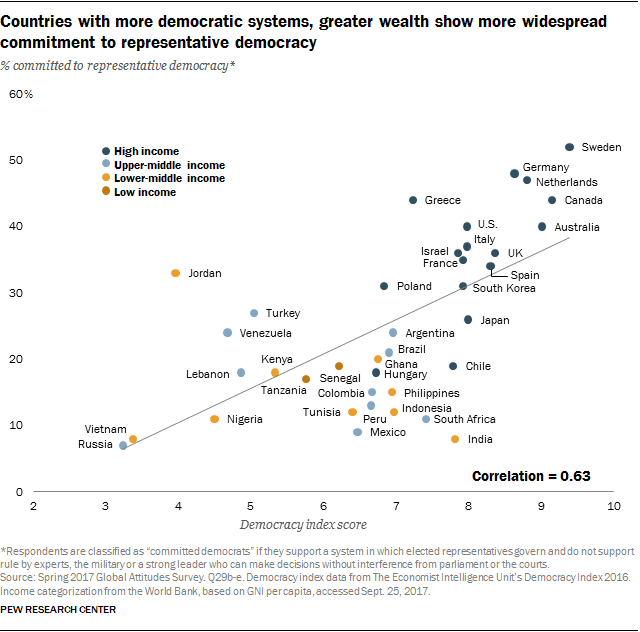Pew:
To examine the public’s support of representative democracy over nondemocratic alternatives, we constructed a commitment to representative democracy index. (The index does not include the question about direct democracy.) Respondents are classified as “committed democrats” if they support a system in which elected representatives govern but do not support rule by experts, a strong leader or the military (i.e., nondemocratic governments). Respondents who say a representative democracy is good but also support at least one nondemocratic form of government are classified as “less-committed democrats.” And those who do not support representative democracy and instead support at least one nondemocratic form of government are classified as “non-democrats.”
Roughly a quarter of people (median of 23%) across the 38 countries surveyed are committed democrats. About twice as many (median of 47%) are less-committed democrats. Relatively few (13%) are nondemocratic. A small share (8%) does not endorse any of these forms of governance.
Commitment to representative democracy is strongest in North America and Europe. A median of 37% across the 10 European Union nations polled, as well as 40% in the United States and 44% in Canada, support democracy while rejecting nondemocratic forms of government. Australia is the only country outside of North America and Europe where at least four-in-ten are categorized as committed democrats.
Sweden (52%) shows the strongest level of commitment of all countries surveyed, with roughly half holding this view. By contrast, Russia (7%) has the lowest percentage of committed democrats.
Unlike the
relationship between
wealth and religiosity, the relationship between wealth and support for democracy is linear, with the US close to the line.

